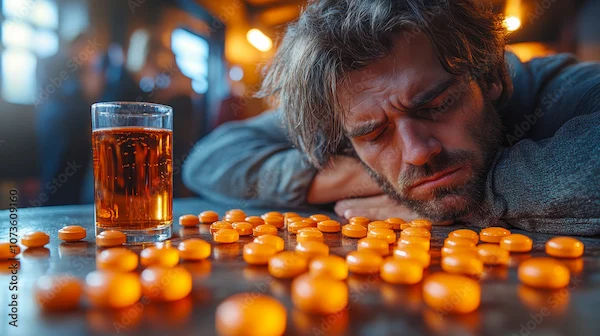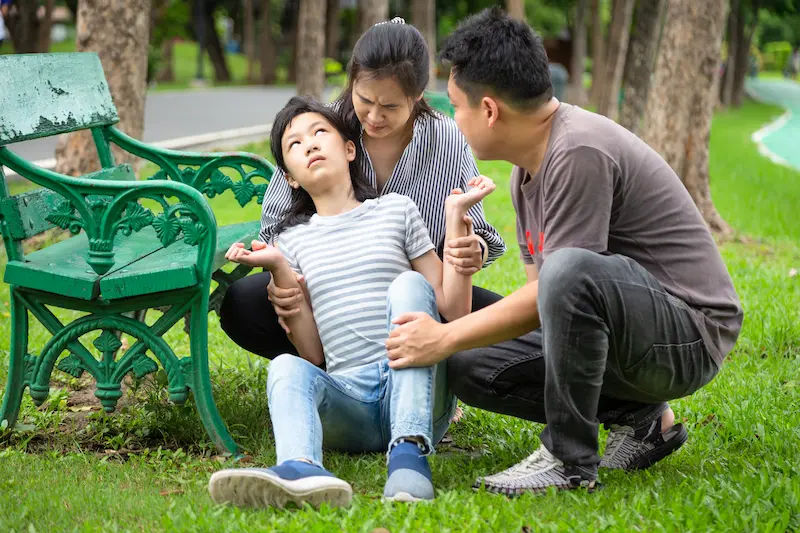Guide to Are You Depressed What Do You Need Know About Big
Know about depression, what it is, causes, signs, symptoms, diagnosis, treatment options & more.

Written by Dr. Siri Nallapu
Reviewed by Dr. Rohinipriyanka Pondugula MBBS
Last updated on 13th Jan, 2026

Introduction
Feeling down sometimes is a normal part of life. But when feelings of emptiness, hopelessness, and loss of interest become a constant companion, it might be more than just a passing phase. You might be asking yourself a big question: "Am I depressed?" Depression is a common but serious mood disorder that has a big impact on how you feel, think, and handle daily activities. It's not a sign of weakness, nor is it something you can simply "snap out of." This guide will walk you through everything you need to know about this big topic—from recognising the subtle signs to understanding the causes and exploring the path to recovery. Think of this as your first step toward understanding what you or a loved one might be going through and finding the hope and help needed to move forward.
What is Depression, Really? More Than Just Sadness
Depression, clinically known as Major Depressive Disorder (MDD), is a complex medical condition that affects the brain. It's characterised by a persistent low mood and a loss of interest in activities, lasting for at least two weeks and causing significant impairment in work, school, or relationships. Unlike the temporary sadness we all experience after a disappointment, depression lingers and colours every aspect of your life. It's like carrying a big, heavy weight that makes even small tasks feel monumental.
Consult a Top General Practitioner for Personalised Advice
Clinical Depression vs. Everyday Blues: Knowing the Difference
It's crucial to distinguish between normal sadness and clinical depression. Grief or sadness are typically tied to a specific event, come in waves, and often include moments of positive memory or emotion. Clinical depression, on the other hand, is pervasive. It's not just about feeling sad about one thing; it's a feeling of numbness and despair about everything. The key differentiators are duration, intensity, and the presence of other symptoms like changes in sleep or appetite. While sadness is an emotion, depression is a state of being.
The "Big T" Trauma Connection: How Major Life Events Trigger Depression
Often, depression can be linked to significant life events, sometimes referred to in psychology as "Big T" Trauma. This includes experiences like the death of a loved one, a serious accident, physical or emotional abuse, or surviving a natural disaster. These big traumatic events can overwhelm the brain's ability to cope, potentially leading to conditions like Post-Traumatic Stress Disorder (PTSD) and, very commonly, depression. The depression in these cases is a response to an overwhelming stressor, and addressing the underlying trauma is often a key part of treatment.
Recognising the Signs: A Detailed Symptom Checklist
Depression manifests differently in everyone, but there are common signs. A formal diagnosis typically requires experiencing five or more of the following symptoms for most of the day, nearly every day, for at least two weeks.
Emotional and Cognitive Symptoms (The Invisible Weight)
Persistent Sadness or Low Mood: A feeling of emptiness, tearfulness, or hopelessness.
- Loss of Interest or Pleasure (Anhedonia): Activities you once enjoyed, including hobbies or sex, no longer bring joy.
- Feelings of Worthlessness or Guilt: Harsh self-criticism, ruminating on past failures.
- Difficulty Concentrating: Trouble focusing, making decisions, or remembering things.
- Thoughts of Death or Suicide: This is a critical symptom. If you are experiencing these thoughts, seek help immediately.
Physical Symptoms (When Your Body Feels the Big Impact)
Depression isn't just in your head; it has real physical symptoms.
- Changes in Appetite or Weight: Significant weight loss or gain without dieting.
- Sleep Disturbances: This can mean insomnia (trouble falling or staying asleep) or hypersomnia (sleeping too much).
- Loss of Energy or Fatigue: Feeling physically drained, even after a full night's sleep.
- Slowed Movements or Speech: Noticeable by others.
- Unexplained Aches and Pains: Such as headaches, back pain, or stomach aches.
Behavioural Changes (What Others Might Notice)
- Social Withdrawal: Avoiding friends, family, and social gatherings.
- Neglecting Responsibilities: Difficulty keeping up with work, school, or household chores.
- Increased Irritability or Agitation: Feeling restless, frustrated, or having a short temper.
What Causes Depression? It's Usually Not One Big Thing
There is no single cause for major depressive disorder. Research suggests it results from a complex interaction of
genetic, biological, environmental, and psychological factors.
The Biological Factors: Brain Chemistry and Genetics
Depression has been linked to an imbalance of neurotransmitters, the brain's chemical messengers like serotonin, norepinephrine, and dopamine, which regulate mood. Furthermore, if you have a family history of depression, you may
have a higher predisposition. It's important to note that this is a predisposition, not a destiny.
Environmental and Psychological Triggers
- Trauma and Stress: As mentioned with "Big T" Trauma, acute or chronic stress is a major trigger.
- Personality Factors: Individuals with low self-esteem or who are generally pessimistic may be more vulnerable.
- Other Medical Conditions: Chronic illnesses like cancer, diabetes, or Parkinson's disease can contribute to depression.
The Big Step: How is Depression Diagnosed?
If you recognise these symptoms in yourself, the next step is seeking a professional diagnosis. There is no single blood
test for depression. A diagnosis is typically made by a healthcare professional—such as a primary care physician,
psychiatrist, or psychologist—through:
1. A detailed clinical interview discussing your symptoms, their duration, and their impact.
2. A physical exam to rule out other medical conditions that can mimic depression (e.g., thyroid problems, vitamin
deficiencies). Apollo24|7 offers convenient home collection for tests like thyroid panels or vitamin D levels, which can
be part of this initial screening.
3. Using standardised diagnostic criteria from the DSM-5 (Diagnostic and Statistical Manual of Mental Disorders).
Finding Your Path: Effective Treatment Options for Depression
The good news is that depression is highly treatable. Between 80% and 90% of people eventually respond well to
treatment. A combination of approaches is often most effective.
Psychotherapy: Talking Through the Big Feelings
Also known as "talk therapy," psychotherapy involves working with a therapist to address the thoughts, behaviours, and
emotions related to depression. Effective forms include:
- Cognitive Behavioural Therapy (CBT): Helps identify and change negative thought patterns.
- Interpersonal Therapy (IPT): Focuses on improving relationship skills.
Medication: Correcting Chemical Imbalances
Antidepressants can help modify brain chemistry. They are not sedatives or "happy pills," and they may take 4-8 weeks
to show full effect. A psychiatrist can help find the right medication and dosage for you.
Lifestyle Modifications: Supporting Your Recovery Daily
- Regular Exercise: Boosts endorphins and serotonin.
- Healthy Diet: Nutrient-rich foods support brain health.
- Quality Sleep: Establishing a regular sleep routine is crucial.
- Mindfulness and Meditation Can help manage stress and negative thoughts.
When to Seek Help: Is It Okay to Ask for Big Support?
If your low mood and other symptoms of clinical depression persist for more than two weeks and interfere with your
life, it's time to seek help. You do not have to wait until things feel unbearable. If symptoms persist beyond two weeks, consult a doctor online with Apollo24|7 for a convenient and confidential initial evaluation. For thoughts of self-harm or suicide, contact a crisis helpline or go to the nearest emergency room immediately.
Conclusion
Understanding depression is the first step toward reclaiming your life. It's a big challenge, but it's one you don't have to face alone. By recognising the signs, understanding the causes, and knowing that effective help is available, you can move from a place of questioning "Am I depressed?" to a path of healing and hope. Recovery is a journey, often with ups and downs, but with the right support and treatment, you can manage this condition and rediscover joy and purpose. Your mental health is a big priority—take that first step today.
Consult a Top General Practitioner for Personalised Advice
Consult a Top General Practitioner for Personalised Advice

Dr. Syed Ismail Ali
General Practitioner
7 Years • MBBS
Hyderabad
Apollo 24|7 Clinic, Hyderabad

Dr Syed Mateen Pasha
General Physician
2 Years • MBBS
Bengaluru
PRESTIGE SHANTHINIKETAN - SOCIETY CLINIC, Bengaluru

Dr. Vivek D
General Physician
4 Years • MBBS
Bengaluru
PRESTIGE SHANTHINIKETAN - SOCIETY CLINIC, Bengaluru

Dr. Anand Ravi
General Physician
2 Years • MBBS
Bengaluru
PRESTIGE SHANTHINIKETAN - SOCIETY CLINIC, Bengaluru

Dr. Debajyoti Goswami
Obstetrician and Gynaecologist
10 Years • MBBS,D.G.O(DNB),Adv. Infertility Tech.(AIIMS),Fellowship in Diabetes(U.K),Comprehensive Abortion Care(Govt. Of W.B), Certificate in Clinical Embryology(AIIMS, BHUBANESWAR)
Bankura
D.G Clinic, Bankura
(25+ Patients)
Consult a Top General Practitioner for Personalised Advice

Dr. Syed Ismail Ali
General Practitioner
7 Years • MBBS
Hyderabad
Apollo 24|7 Clinic, Hyderabad

Dr Syed Mateen Pasha
General Physician
2 Years • MBBS
Bengaluru
PRESTIGE SHANTHINIKETAN - SOCIETY CLINIC, Bengaluru

Dr. Vivek D
General Physician
4 Years • MBBS
Bengaluru
PRESTIGE SHANTHINIKETAN - SOCIETY CLINIC, Bengaluru

Dr. Anand Ravi
General Physician
2 Years • MBBS
Bengaluru
PRESTIGE SHANTHINIKETAN - SOCIETY CLINIC, Bengaluru

Dr. Debajyoti Goswami
Obstetrician and Gynaecologist
10 Years • MBBS,D.G.O(DNB),Adv. Infertility Tech.(AIIMS),Fellowship in Diabetes(U.K),Comprehensive Abortion Care(Govt. Of W.B), Certificate in Clinical Embryology(AIIMS, BHUBANESWAR)
Bankura
D.G Clinic, Bankura
(25+ Patients)
More articles from Depression
Frequently Asked Questions
1. Can depression go away on its own?
While mild depressive episodes might lift without treatment, it's risky to wait. Untreated depression can worsen over time, last longer, and increase the risk of future episodes. Seeking professional help is the safest and most effective path to recovery.
2. What's the difference between depression and anxiety?
Depression is primarily characterized by low mood and loss of interest, while anxiety involves excessive worry and fear. However, they frequently co-occur, and many symptoms of clinical depression, like irritability and sleep problems, can overlap with anxiety disorders.
3. How can I help a loved one who is depressed?
The best things you can do are to offer non-judgmental support, listen without trying to 'fix' them, encourage them to seek professional help, and be patient. Avoid phrases like 'just cheer up' and instead offer practical help, like accompanying them to an appointment.
4. Are antidepressants addictive?
Antidepressants are not addictive in the way substances like alcohol or opioids are. However, stopping them abruptly can cause discontinuation syndrome (withdrawal symptoms). It's essential to work with a doctor to taper off medication safely.
5. How long does treatment for depression take?
This varies greatly. Some people see improvement in a few weeks, while for others, it may take months. Treatment is often divided into an acute phase (to relieve symptoms), a continuation phase (to prevent relapse), and sometimes a maintenance phase (for those with recurrent depression).




